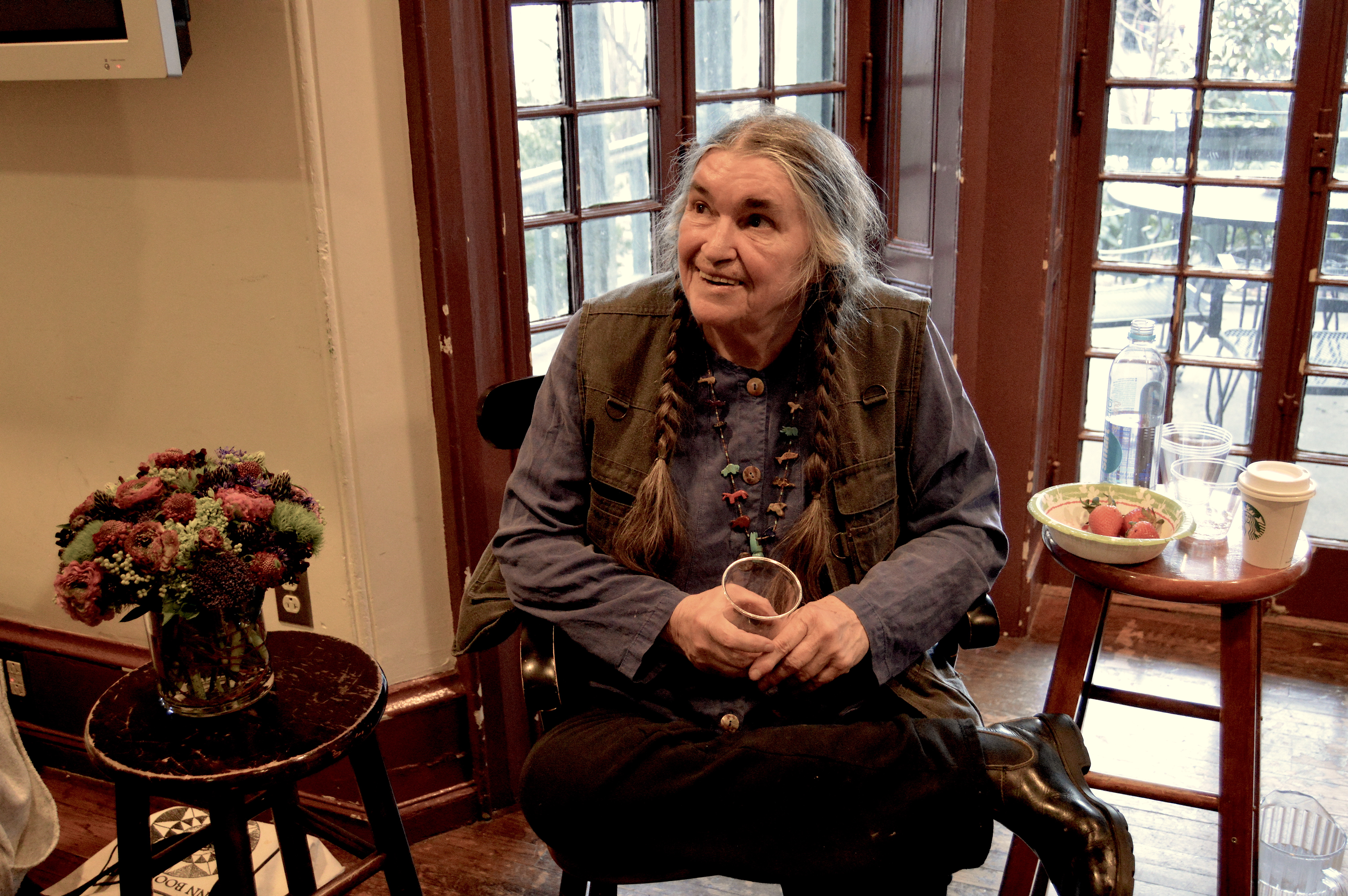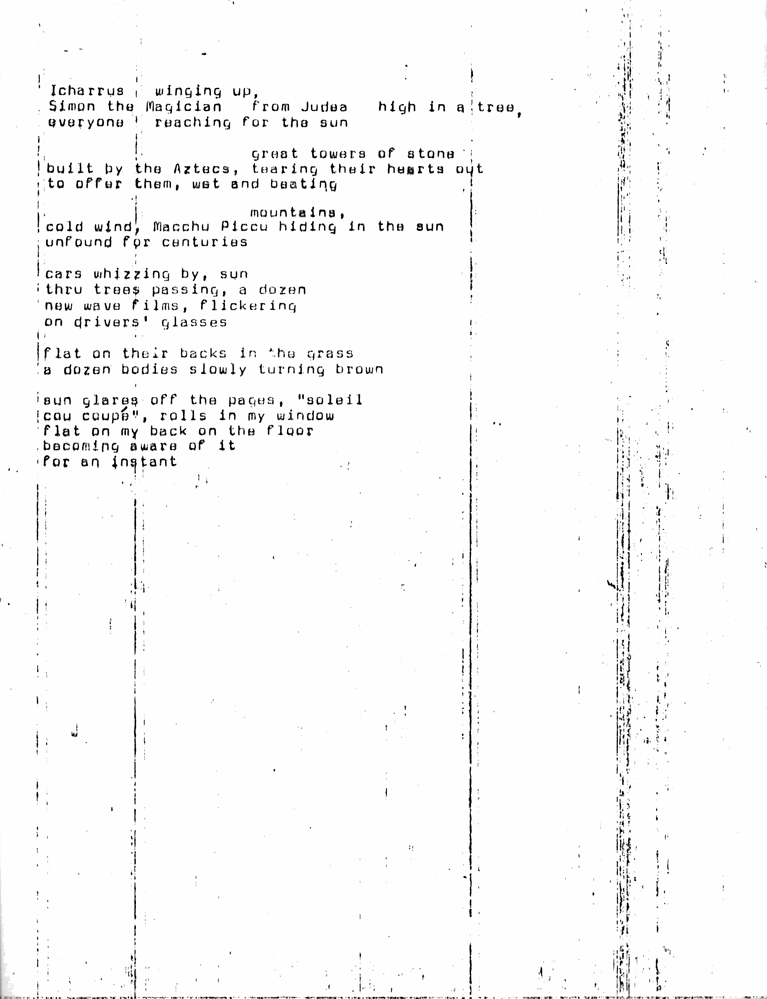In the reflections that follow, I refer to media-archaeological reassessments of psychoanalytic theory as a way of opening American poet Bernadette Mayer’s Studying Hunger Journals (1972–1975) to new readings. If, as argued by the likes of Jacques Derrida and Friedrich Kittler, among others, psychoanalytic models of the human mind, from the “psychic apparatus” of Sigmund Freud to the schema of Jacques Lacan, are in fact underwritten by the media-technical conditions of their respective historical eras, then how might this insight shift perspectives on Mayer’s book, a project undertaken not only as an aid to psychoanalysis, but also at the dawn of the so-called Information Age?



